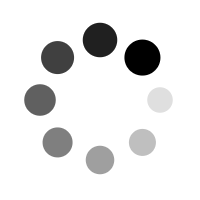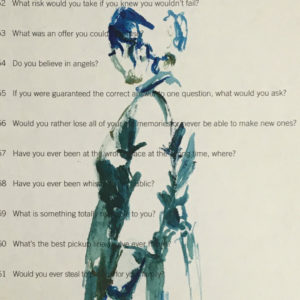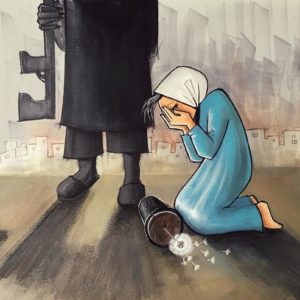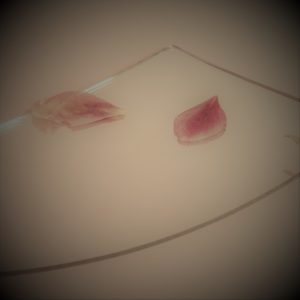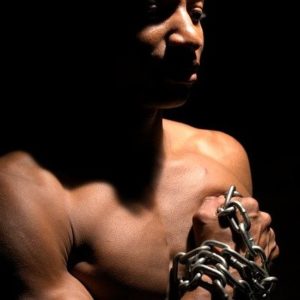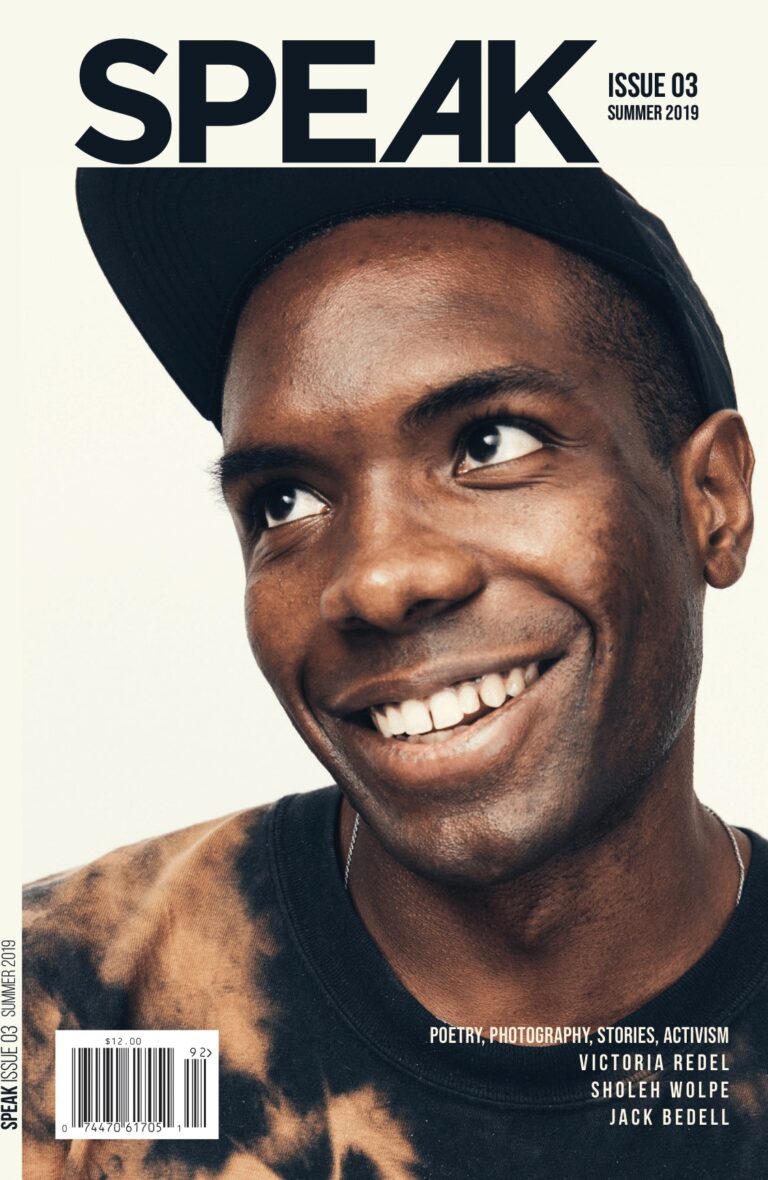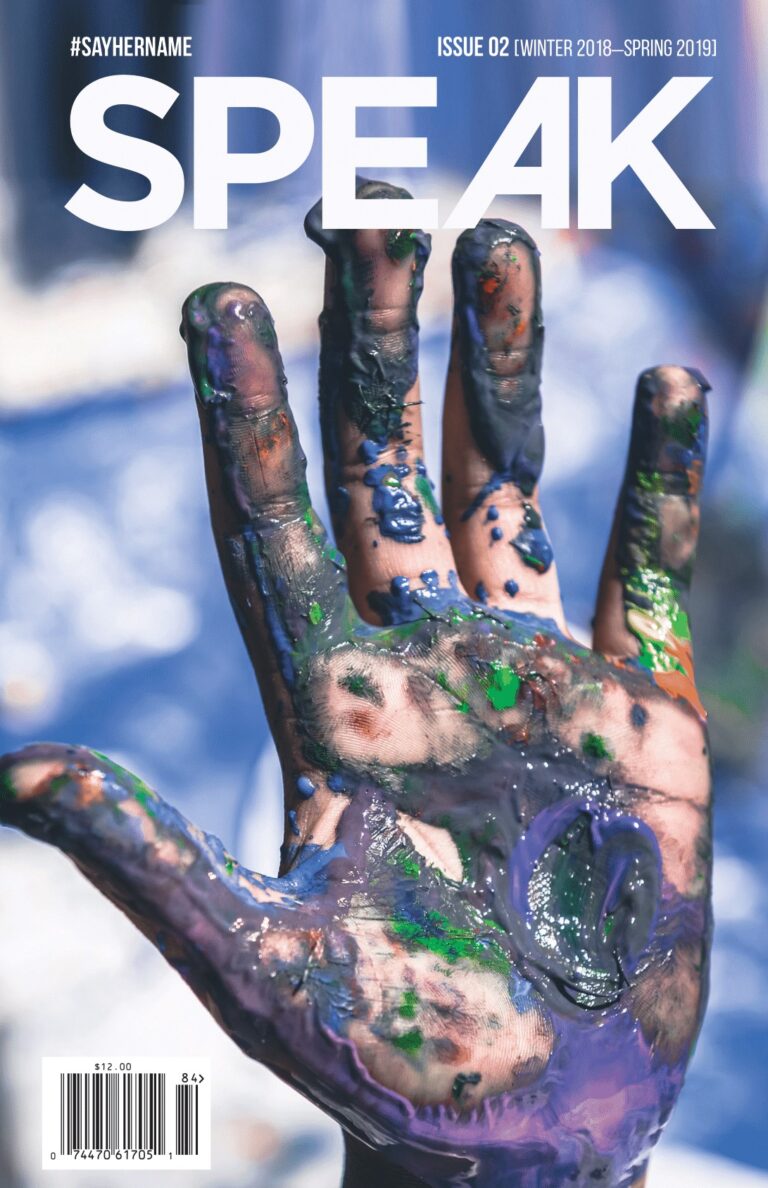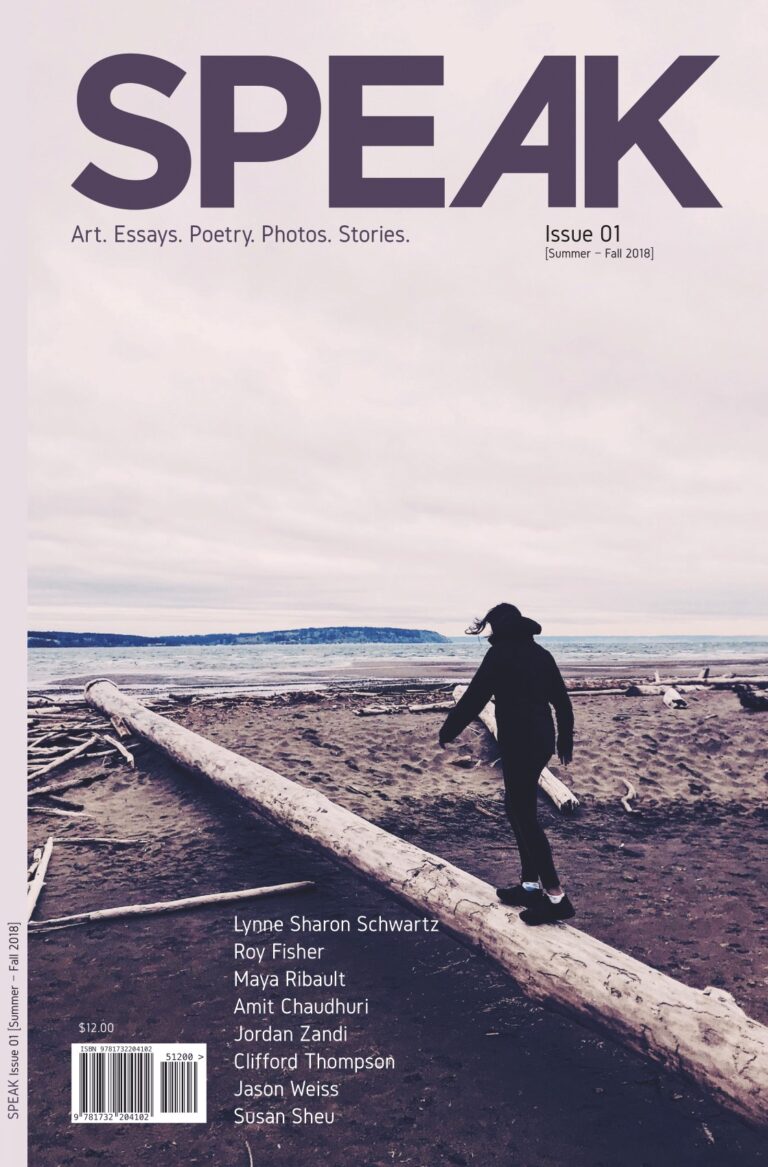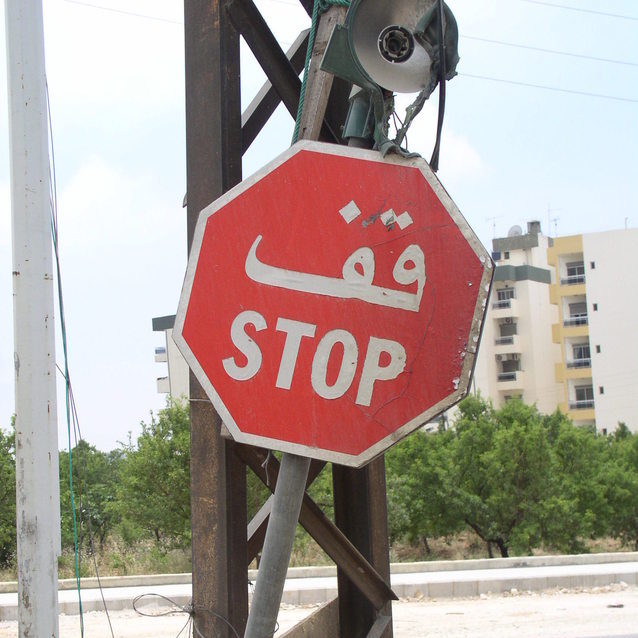
Photo by grzesio grzesiowski from FreeImages
A decade ago, I went to see a film with a well-meaning white kid from my writing workshop. We met at the Cedar Lee, an indie theater with ugly carpet charm, known in Cleveland for showcasing foreign pictures. Fumbling for our seats along the aisle, he leaned a little into my ear to talk over the previews (this was, I would realize years later, a date). He’d seen the film before and knew I would love it because I was Lebanese. “Even though they had to shoot it in Jordan,” he added, miffed, a fact he’d filched from the brochure but delivered as if he could tell the difference.
The theater was sparsely populated: A handful of older white people, artistic types, carefully chewed their popcorn around the audio. This was before social media could propel enough hype around a foreign picture to plug it into the algorithms of diasporic viewers. So these people were here because this was exotic, art from a faraway and dangerous place. The violent scenes that unpeeled before us were a departure to them, a late-afternoon getaway from carpools and boardroom meetings. As far as I could tell, I was the only Lebanese person there, the only one who knew these regions intimately. For me, the scenes were visceral. Alive in recent memory.
In less than an hour, I paced to the restroom. Sobbed in an open stall. Composed myself. When I returned to my seat, my date filled me in monotonously about the plot points I’d missed, adding, “Well, she’s in prison now. This guy is the rapist.”
I’ve watched Incendies only twice since. The 2010 film, based on a play by Wajdi Mouawad, is a phenomenal work, one that effectively ties the horror of civil war to its incestuousness. Religious diversity, the common scapegoat for bloodshed and political upheaval, is not the focus in Incendies. The film’s message scorns the “hopeless complexity” of Lebanon’s religious makeup by presenting an inherent simplicity––that hatred breeds hatred, violence propels violence, love begets love. And that ultimately, we are all from the same family anyway.
It is one of my favorite movies, but I have never recommended it to my Lebanese friends. I know what they will see in it. All of our collective hearts splayed open, a harsh surgeon’s light on an old, inherited wound.
Next to me, my date shuttled a box of candy against his mouth and, towards the end, turned to my wet face to add, “The camera work with the fire. Just, wow.”
*
Only older Americans seem to remember a Beirut without its fires. The Paris of the Middle East plunges further into its post-war dark age with every new headline. I consider the ‘before’ time often. There’s something sacred about it, tinted sepia by my parents’ nostalgia. It feels like a myth.
There was once, for example, a direct flight from New York to Beirut. We didn’t have sanctions or restrictions on our airspace or oceans; there was no garbage crisis, no devastating wildfires, no medicine shortages, no untamed militias, no supersaturated refugee camps. Travelers came from every corner of the globe to swim in the warm Mediterranean, kiss on the corniche, and spend a quiet, cool night in the lush hillsides. Lebanon was a paragon then: the well-behaved sibling in the region, where nearly twenty religious sects co-existed peacefully. To this day, my mother marvels that, in such a small country, it is possible to ski in the mountains and scuba dive along the coast on the same day. As a girl scout in Lebanon, she’d spent field trips in the Beiteddine Palace, countless religious temples, the statue of Our Lady in Harissa, and stretches of wild valleys and rivers. As tourists, we have visited the frozen human forms in Jeita Grotto, taken a ski-lift in Mzaar, tasted Baalbak’s ancient wines near the Temple of Jupiter.
I imagine a reality where we can do this without concerns over safety. This concern is a tourist’s luxury––an American luxury. We can elect to stay stateside if we feel the summer might be risky, and that privilege has removed us from the violence that’s flashed on and off for decades. I still haven’t found the way to properly reclaim both countries: the paradise I fantasize about as a tourist, the warzone I recognize on the news.
As someone esthetically “Arab” in white America, I recognize that Lebanon exists in my vernacular as an imagined entity, a montage of overlapping childhood summers and snippets of horrifying photos on the Internet. In short, I don’t know what to make of it. It is too far away to be home, too close to be anything else.
My own reckoning aside, though, much of America has already decided what to make of it for me. I grew up in the Midwest with a unibrow and an accent, which is enough to get you labeled as a terrorist (“It’s a joke! Lighten up!”). I remember reading one of Shakespeare’s plays aloud for a substitute teacher in 2007; he stopped the class to ask me where I was from because my English was “well, very good” (everyone, except the two of us, laughed). Another teacher, a hardened coach, and lesbian (read: liberal) asked me if I knew how to belly dance and then swung her hips around my desk. For a year she harped on my accent, any slightly mispronounced word sending her into hysterics. A professor in graduate school told me to keep “that Arab temper” at home. Another would mockingly ask my opinion on current events for “an Arab perspective.”
I am choosing to list a few teachers who should have known better because a list of peers or strangers would span pages. Their reactions to me had nothing to do with Lebanon and everything to do with their perceptions of the region as a whole, the idea that they were––in some obscure way––under attack from a violent ‘other’ that looked like me. All “Arab” bodies congealed in their eyes, and eventually in our own eyes too. In America, much of the shared consciousness of diasporic South West Asian and North African communities can be understood by the way we were treated: as if we are all the same.
I began to believe it in earnest. Lebanon’s proximity to or distance from crises in Palestine, Syria, Egypt, Yemen, or Iraq was irrelevant. Here, we were all from “your country.”
*
I viscerally understand, as someone kind-of-white-passing, that I haven’t had it so bad. Most of the time I’m legitimately grateful for the low-grade torment, grateful for the good life my parents were able to provide in a white suburb. I’ve forgiven the bullies, the assaults, the exoticism, the barbarity and chaos of our America after September 11. The stories are allegorical now, recounted over a beer, like describing something stupid your cousin did when you were kids.
The stories disturb my white friends more than they disturb me. “You should report them,” they advise. “When did it happen?” they ask. “Americans are so culturally illiterate!” It is these same well-meaning crusaders that were the first to start posting “Free Palestine” when Israeli airstrikes butchered hundreds of Palestinians in Gaza earlier this summer. They were shocked at the videos of Israeli soldiers blasting protestors with live ammunition, throwing grenades into civilian homes, leveling entire apartments with families still inside. “Someone has to do something!” they agreed. They continued to repost the graphic content that was violently exotic to them.
Palestinian tragedies, like the Gaza bombing this summer or the endless illegal land grabs in Jerusalem, or the recent destruction of ancient Canaanite graveyards, were unfortunately not news to those of us from SWANA. But the Palestinian plight was invigorated with a sense of urgency this time, a notable ‘anti-police state’ ideation that had fermented with the BLM movement over the summer. Suddenly it was significant that IDF soldiers had trained Minneapolis police, that neighborhoods like Sheikh Jarrah called to mind the Native American frontier. And suddenly the mic was turned to our communities in earnest. What did we think? How did we feel? Seriously, since we are all essentially the same, what was the “Arab perspective”?
*
On Instagram, children trapped in the rubble of their bedrooms call out for their mother. They can’t be retrieved, the roads purposely targeted so ambulances and cranes do not get to them. Medics are shot. Journalists are shot. A man cradles the body of his dismembered daughter against a wall. An entire family is wrapped in Palestinian flags and buried together; all three are generations lost. The content doesn’t stop. It is with me from the moment I take the train into the city until I lay in bed at night. In the identification photos for the martyrs, I see the tan skin and curly hair that marked them, idiosyncratically, for slaughter. They look like me.
The posts have pulled a fossilized memory out of the depths: It’s a costume party at the end of our senior year in high school, and we’re all dressed as characters from our required reading. Our English teacher has ordered pizzas and sodas, and we mill around the room gathering our guesses. It’s cosplay, but you aren’t allowed to say who you are outright, and you can’t give obnoxious clues.
I’m donned in an old khaki t-shirt and cargo pants, my hair slicked back to look like a man. I’ve taped five bullet holes to my chest, which I’ve drawn on construction paper in sharpie. Mine was a parenthetical character, one you’d miss if you hadn’t read closely: The Arab from Albert Camus’s The Stranger. Throughout the afternoon, whenever anyone asks, I just repeat: “Meaursault killed me in broad daylight!”
It gets a reliable laugh. Our teacher awards me ‘best costume.’ Later, in the hallway, Gatsby’s Jordan Baker calls my outfit cruel. “Who comes as someone killed? It’s in bad taste.” She spins away in her vest and checkered skirt, the golfing club balanced on her shoulders.
“The scene was in bad taste,” I yell back. That was the whole point. Calling it into question, making it visible. I’m frantic that she doesn’t get it. “Camus and the French are in bad taste! Colonizers!” The victory is tainted now, and suddenly the memory is sad. I can’t enjoy the win without feeling like I sold someone out. When I get home, I peel the bullet holes I made myself off my shirt and wonder, as I will for the entirety of that summer, if she is right.
I hate that she is.
*
There is no grace in navigating racism. I admit with humility that the costume party was not my only misstep. As recently as last year in New York––when I did not engage with an Israeli who blamed Lebanon’s demise on Muslims––I have participated in my othering. I have internalized, like many of us in the diaspora, the perception of “me” from my out-group.
In the face of mockery, I learned to laugh the loudest. When accused, I conceded. When forgotten, I was relieved. The self-hatred that springs from our coping mechanisms is so remarkably undetectable until it isn’t. In the endgame, your response doesn’t matter. You aren’t set up to win, whether you take it all like a sore loser or a good sport. Whether you fight or forgive.
This summer, the world watched the mass murder of Palestinians on Instagram, Twitter, and Facebook. Posts were captioned with calls to end ethnic cleansing as it continued to happen in real-time. Every morning there was another unwatchable video to share, censored already by social media’s Israeli bias, another Twitter thread with prejudiced reporting from the BBC or the New York Times. It was Incendies at the Cedar Lee all over again, and over and over again, but without the reprieve of ever leaving the theater. The camera was still on the fires, the white audience just stopping by briefly to watch.
*
As my friends and I marched, protested, and strategized for a free Palestine, I felt the anesthetic effect of finally getting media coverage quickly wear off. Underneath, it was all pain.
No one wants to watch a familiar body get killed, much less on a loop via an Instagram Reel. Further, no one wants to read the comment that celebrates that murder. But the exposure was the only guarantee that our fight would stay, however imperfectly, on the algorithm. If it wasn’t talked about, it would sink back into the black obscurity of a silent and active oppressor. Outrage was our only tool. And outrage is subjective; what outrages you reflects your moral code. Either you care and you are good, or you don’t and you aren’t.
Outrage has a timeline. Even the most salacious story fades into the archives after a few weeks. Palestine is no different. I watch the fury flicker and dim out, and I’m not sure which is worse: being reminded of our tragedies or having them completely forgotten. What alternative exists for those of us who can’t scroll into another reality? When the fire is in your home, what do you say to the people who stop to gawk at it?
The teenager imperfectly satirizing Camus would urge you to keep looking. The narrative that made me uncomfortable in my body––the shooting victim referred to only as “the Arab,” every in-class discussion praising the white author’s existentialism––deserved to be questioned then and now. The college student gritting her teeth through Incendies to the right of a white boy would ask you to turn away. I was more concerned with being polite to him than comforting myself. I felt unseen then, ashamed and angry, desperate to disappear. But my misery never factored in his plans. The fifth-grader getting called a terrorist, the grad student routinely exoticized and assaulted, every version of me and not-me that I’ve lived through or heard recounted or watched before me, will have a different opinion of what you should do.
But while the jury is still out on the proper spectator’s response, we can agree that you are there––you are part of the shot. In fact, the entire shot has been set up because of you. On your behalf. At your discretion. And all we’re asking is that you notice the fire itself this time––not the glitter and smoke, the camera angle, the political significance, the audaciousness of shooting in Jordan––but for your role in it, our shared human pain, the paradise waiting for an opportunity to rebuild.
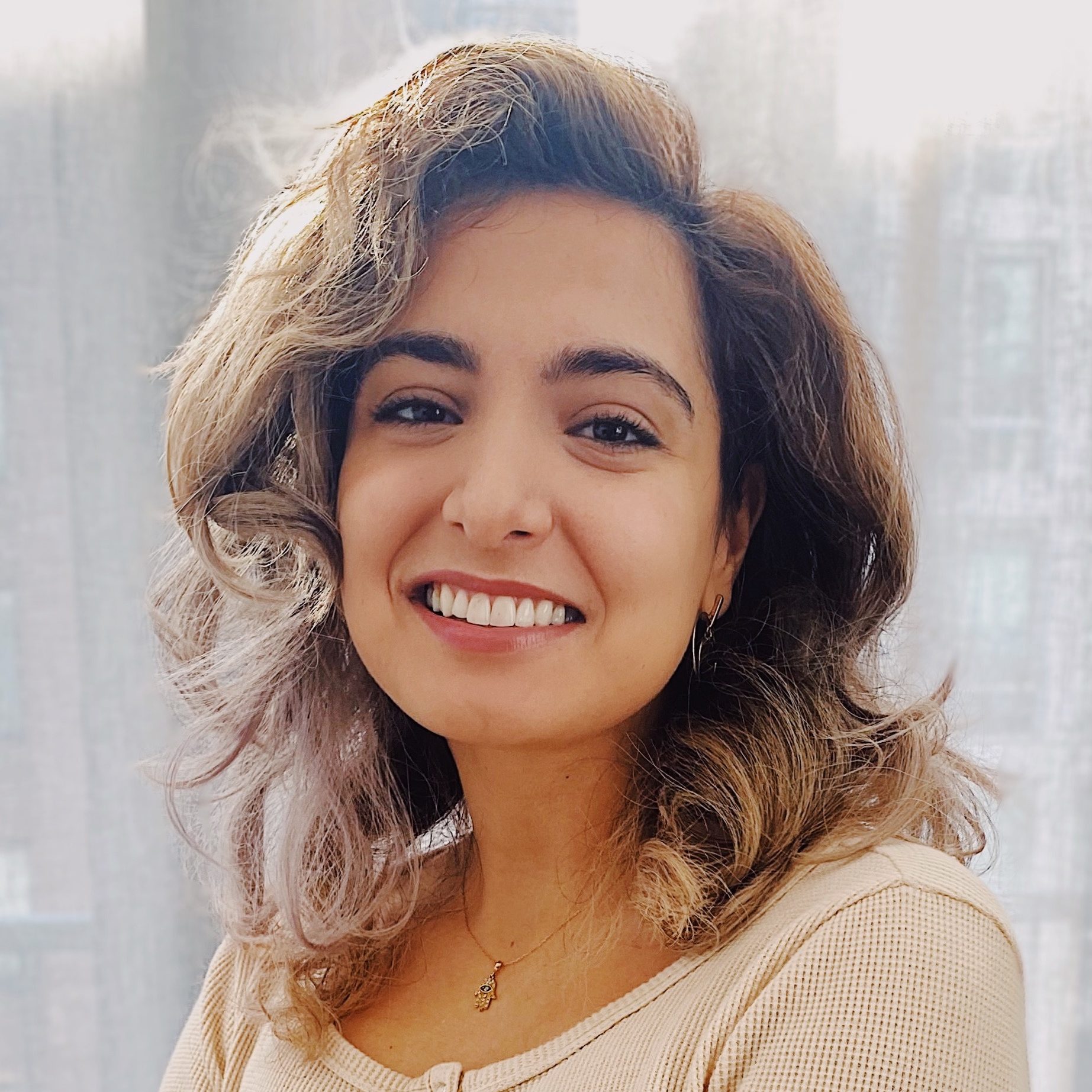
meet the author
Ghinwa Jawhari
Ghinwa Jawhari is a Lebanese American writer based in Brooklyn, NY. Her debut chapbook, BINT (2021), was selected by Aria Aber for Radix Media's Own Voices Prize. She is a 2021 Margins Fellow with the Asian American Writers' Workshop. Her essays, fiction, and [...]
Read More
Subscribe to our newsletter
